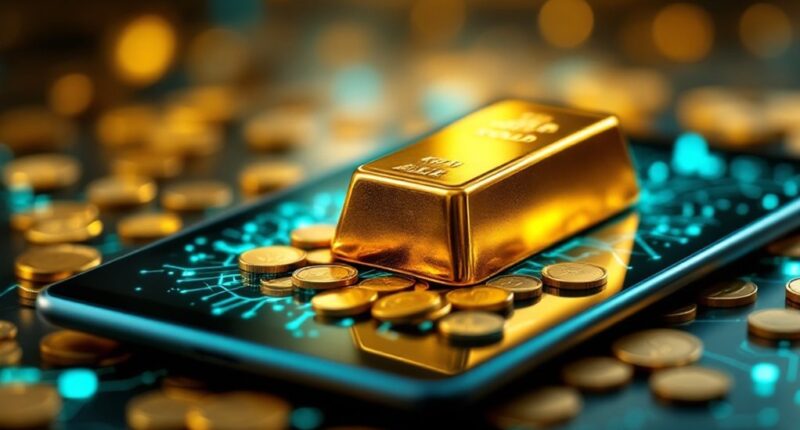As the global financial landscape continues to evolve at breakneck speed, digital gold has emerged as a fascinating hybrid that marries the time-tested stability of physical gold with the convenience of modern technology. This innovation represents ownership of physical gold in electronic format, with the precious metal stored securely in vaults while ownership is recorded digitally—like having your gold cake and eating it too, minus the teeth-breaking consequences.
The economic impact of digital gold could be transformative. Just as oil reshaped global finance in the past, digital gold has the potential to trigger the next economic revolution. It acts as a hedge against inflation while potentially alleviating unsustainable national debt and sustaining demand for U.S. Treasuries. The accessibility of digital gold makes it particularly appealing to younger investors who appreciate being able to start with as little as ₹1 investment. Bitcoin also offers similar hedging potential, showing high tail-risk exposure similar to US oil returns while providing investment diversification opportunities. Think of it as a modern take on the Bretton Woods monetary system, but with fewer men in smoky rooms making decisions and more distributed technology keeping everyone honest.
Market trends support this potential revolution. Gold demand remains robust across jewelry (48.74%), investment (23.32%), and central bank purchases (21.25%). With prices reaching $2,464 per troy ounce in 2024 and forecasts suggesting a continued upward trajectory to $2,600 in 2025, the foundation for digital gold’s significance is solid. Price-stable cryptocurrencies have further solidified digital assets’ role in the financial ecosystem by reducing the volatility concerns that historically deterred traditional investors.
Technological advancements power this transformation. Blockchain technology enables secure, transparent transactions, while smart contracts automate gold-backed financial instruments. This marriage of ancient wealth and cutting-edge tech makes gold ownership accessible to everyday investors—no treasure chest required.
Regulatory bodies are taking notice too. Governments worldwide are increasingly interested in regulating digital gold markets, with some considering bitcoin as a strategic reserve asset alongside the expansion of stablecoins backed by U.S. Treasuries.
The future outlook suggests digital gold could revolutionize our economic system much like the gold standard and petrodollar did in their eras. As this asset class continues to develop, it has the potential to create a more interconnected and efficient global financial landscape—perhaps the true wealth of tomorrow.









